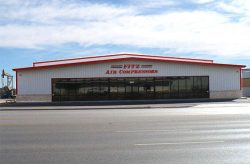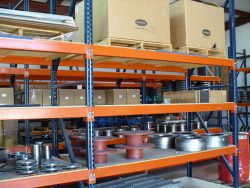Air Compressor Sizes: What Air Compressor Size Do You Need?
A compressor is an essential part of your shop, and it has a significant impact on the quality of your work, too. To ensure that you get the most out of your compressor, you’ll need to choose the right size. If you’re asking yourself the question, “what size air compressor do I need?” then let us help you find the right one for your specific requirements.
What Size Air Compressor Do I Need: Getting Started
Buying an air compressor can be a significant investment. How do you determine which one is appropriate for your needs with all the air compressors available on the market? You’ll want to consider a few different factors before you make your final decision, including:
Type of Air Compressor
It’s essential to consider the type of air compressor you’ll need before you make your purchase. Most shops start with a large portable air compressor, great for running air tools and equipment. As your needs grow, you may want to invest in a smaller industrial air compressor, which will allow you to run multiple tools and equipment at once.
Your Application Needs
Another essential factor to consider when answering the question, “what size air compressor do I need,” is determining what your application and workload needs will be.
- Will you be running a few tools and accessories, or will you be running large industrial equipment?
- Will you be working alone, or do you need to work in a shop setting with other employees?
Answering questions like these will help you determine what air compression size will help you get your jobs done.
How Much Air You’ll Need
When you’re starting, your air compression needs will vary depending on what you’ll be doing. However, you can begin to gauge the amount of air your compressor will need to handle your workload correctly.
For example, a small portable air compressor will work great if you plan to do a few light sanding jobs and run a few tools and small accessories. However, if you’re planning to run large industrial equipment, you should go for a much larger air compressor capable of providing a more significant amount of air.
Type of Power Supply Needed
When choosing an air compressor, one of the first considerations you’ll want to make is what type of power supply will be needed. Most portable air compressors use a standard 110-volt power supply, while most industrial air compressors require a 220-volt power supply. This means that if you plan to purchase an air compressor for your shop, you’ll need to make sure you have the necessary power supply outlets installed.
Another consideration worth exploring is whether you’ll want an air compressor that runs off alternative power methods, such as gasoline.
More Considerations
Other things you’ll want to consider when answering the question, “what size air compressor do I need,” include:
- Portable vs. stationary: Some air compressors are designed to be portable, which means they’re small and lightweight enough to be carried around in your workshop. Other air compressors are designed to be stationary, which means that they’re large and heavy enough to be left in one place.
- Your budget: What size air compressor will you be able to afford? Will you be able to afford the price of an industrial air compressor? Would it be more budget-friendly to choose electric over gas? You not only want to consider the initial purchase price but also the long-term cost to run your air compressor, as well as your maintenance budget.
- Necessary Accessories: You’ll also want to consider the accessories you’ll need for your air compressor. For example, do you plan to use several kinds of air filters? What type of oil or grease will you be using? Do you need a pressure gauge or a regulator? You’ll need to consider each of these questions and more when deciding how big of an air compressor you’ll need.
Will Consulting an Air Compressor CFM Chart Help Me Decide?
A handy air compressor CFM chart can help you determine which air compressor size will best meet your requirements. This chart shows the maximum airflow rate in cubic feet per minute (CFM) that different air compressor sizes can provide.
However, keep in mind that air compressor CFM charts differ from the PSI charts found in basic air compressor instruction manuals. A PSI chart shows the maximum pressure that a compressor can safely handle, while an air compressor CFM chart shows the maximum airflow rate that a compressor can supply.
How Big of an Air Compressor Do I Need?
The size of your air compressor will largely depend on the amount of air compression work you plan to do.
For example, if you intend only to use your air compressor to blow off some excess dust and debris from your workbench once or twice per week, then a small portable air compressor will work just fine.
However, if you plan to run a large industrial air compressor 24 hours per day, 7 days per week, then you’ll want to make sure you have a large industrial air compressor.
Let Fitz Equipment Help You Find the Perfect Size Air Compressor for Your Needs
Here at Fitz Equipment, we understand that you have many options to choose from when it comes to deciding which air compressor to purchase. Our team of industrial air compressor specialists will help you determine what size air compressor will best suit your needs and budget.
Ready to get started? Contact us today for more information.




